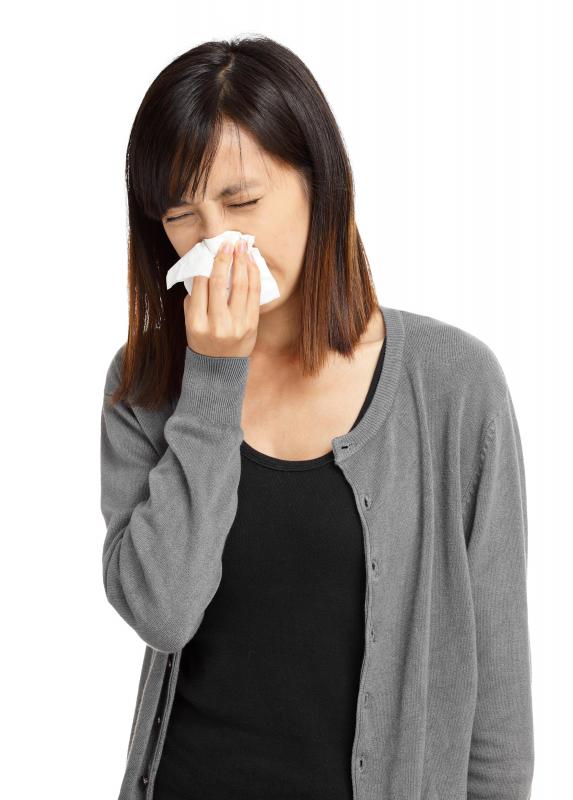At WiseGEEK, we're committed to delivering accurate, trustworthy information. Our expert-authored content is rigorously fact-checked and sourced from credible authorities. Discover how we uphold the highest standards in providing you with reliable knowledge.
How do I Choose the Best HEPA Furnace Filter?
The best High Efficiency Particulate Air (HEPA) filter for a home furnace is one that will remove allergens at a level necessary to keep the people inside comfortable. A HEPA furnace filter must be able to remove 99.97% of all particles that measure 0.3 microns or more in order to be labeled as such. Furnace filter performance is rated on the Minimum Efficiency Reporting Value (MERV) scale. Filters with low numbers only filter out the largest bits of dirt and dust to protect the furnace system. Filters with high numbers, including HEPA filters, remove smaller particles and more allergens to improve air quality.
Some people with serious allergy and breathing problems need the most powerful filters available, while others are satisfied with filters with low MERV ratings. Those who do need the better filtration should look for filters that rate between 12 and 16 on the MERV scale. There is an important distinction to be aware of when buying filters, however. A standard furnace filter that measure 1 inch (2.54 cm) thick is typically not a true HEPA furnace filter. Instead, it is a HEPA-type filter, which will not pull as many particles out of the air.

Most allergy-conscious furnace filter brands available today that call themselves HEPA-type filters are built in a similar way to a true HEPA furnace filter, but are not as dense or efficient. They are unable to catch the tiniest particles. They may only be 85% efficient once the particle size drops below 1 micron. A true HEPA furnace filter will typically be far too dense to work on most standard home furnaces and can actually cause furnace failure.

A HEPA furnace filter is so dense that a furnace has to work harder to pull air through the material. Some furnace systems do not have enough power to do so. Older furnaces may have a particularly difficult time. If a very high MERV-rated filter or a true HEPA filter is installed, it is necessary to check the air coming from the vents. If the air is not flowing as much as it did before the new filter, then the filter may be too dense and efficient for that furnace system.

An option may be to purchase an air purifier with true HEPA filtration. Another alternative for those who need highly-filtered air for health reasons is to install a special whole-house filter between the air return and the furnace. These are often called filtration media systems. They use a filter that can be anywhere from 3 to 5 inches (about 7.6 to 12.7 cm) thick. They also usually have a built-in system to help move air through them, to take the burden off the furnace.
AS FEATURED ON:
AS FEATURED ON:













Discuss this Article
Post your comments